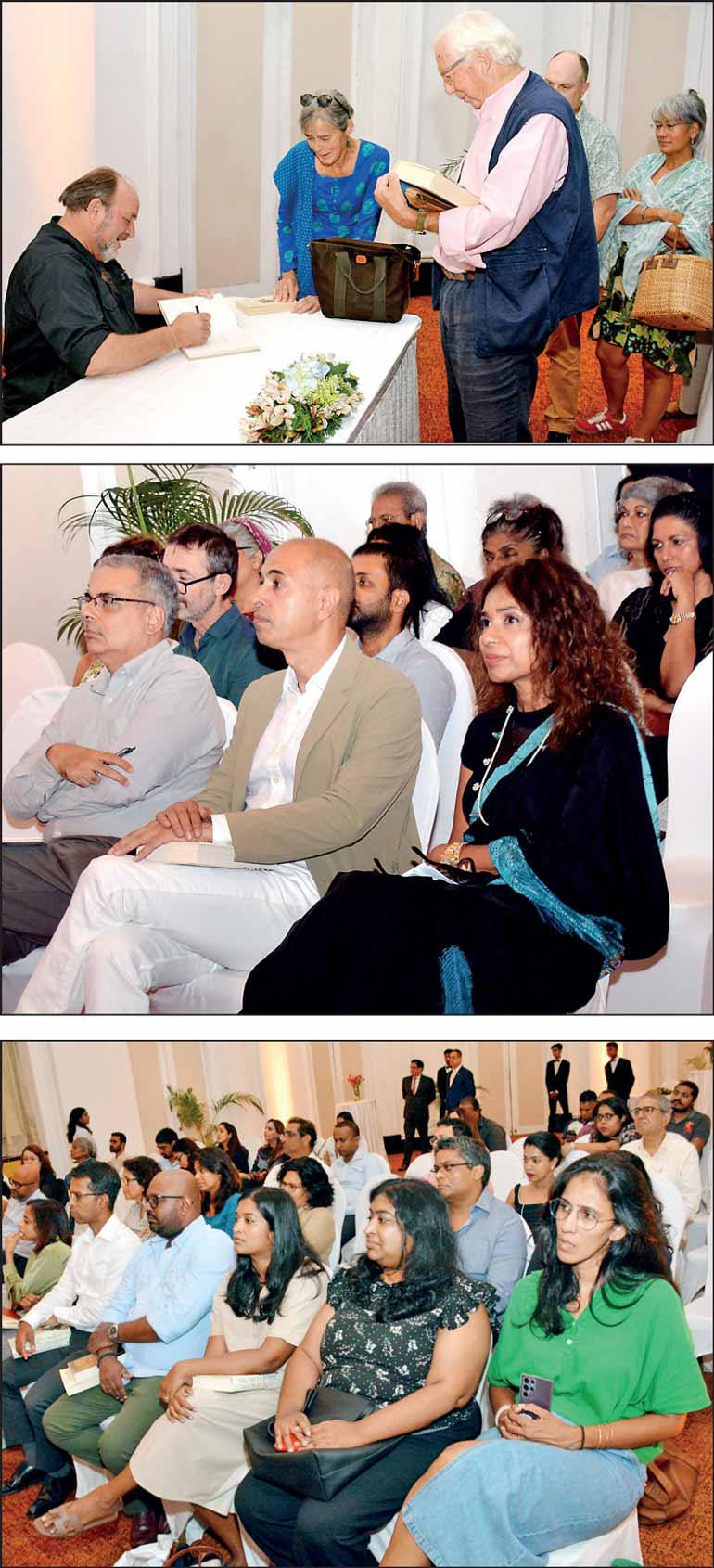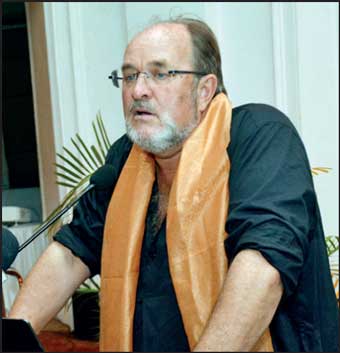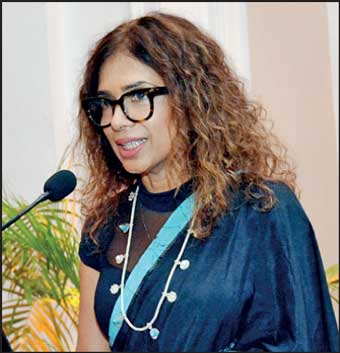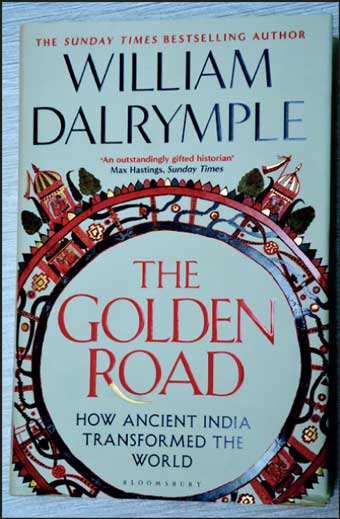Wednesday Feb 25, 2026
Wednesday Feb 25, 2026
Wednesday, 19 March 2025 00:00 - - {{hitsCtrl.values.hits}}


 |
| Author William Dalrymple |
 |
| Angeline Ondaatjie |
 |
By Tania de Silva
Renowned historian and author William Dalrymple this week in Colombo presented his latest work “The Golden Road: How Ancient India Transformed the World.”
Introduced by Angeline Ondaatjie, Dalrymple shared his unique perspective on how ancient traditions and historical events continue to shape the world we live in today. With his trademark blend of in-depth research and engaging storytelling, he explored how the past is never truly gone but remains a living influence, woven into the fabric of modern society. The session offered a compelling look at how cultural exchanges, historical routes, and enduring practices continue to shape identities and connections across time.
Dalrymple’s latest work, “The Golden Road”, highlights the continuity of traditions, from ancient pilgrimages to long-standing cultural practices. The book reflects his ongoing passion for South Asian and colonial history, examining how historical journeys and festivals persist in today’s global landscape. With “The Golden Road”, Dalrymple brings to life the significance of these enduring connections, bridging the gap between past and present in a way that resonates deeply with readers.
Dalrymple, offered a masterclass in historical scholarship. He discussed the significance of history as a living, breathing entity that continues to shape contemporary life, not just as a static record of the past, but as an ongoing influence on identity, faith, and geopolitics.
Dalrymple’s exploration of the Hindu-Arabic numeral system illustrated his point. He shared how the world’s earliest dated inscription of the symbol “0”—used to represent zero—can still be found in the Gwalior inscription. This early use of numerals demonstrates the lasting influence of ancient knowledge on modern mathematics and science.
Dalrymple also turned his attention to some of the world’s most monumental structures. His discussion on the grandeur of Angkor Wat, the largest Hindu temple in the world, built in the 12th century, was particularly enlightening. Dalrymple’s insight into such structures underscored his expertise in understanding how historical achievements are interwoven with the modern world.
His reflections also extended to the history of paper, which he described as “more valuable than silk, for it carries the knowledge of the world”. This poignant remark highlighted the critical role that written records have played in preserving history, facilitating trade, and encouraging cultural exchange across centuries.
Beyond his literary achievements, Dalrymple’s contributions to global literary discourse are immense. As a co-founder of the Jaipur Literature Festival, he has brought together a wide range of thinkers, writers, and historians, further cementing his role as a key figure in the re-examination of South Asian history. His work, particularly “The Golden Road”, continues to bridge the divide between academic scholarship and general readership, making complex historical narratives both accessible and deeply relevant.
- Pix by Upul Abayasekara